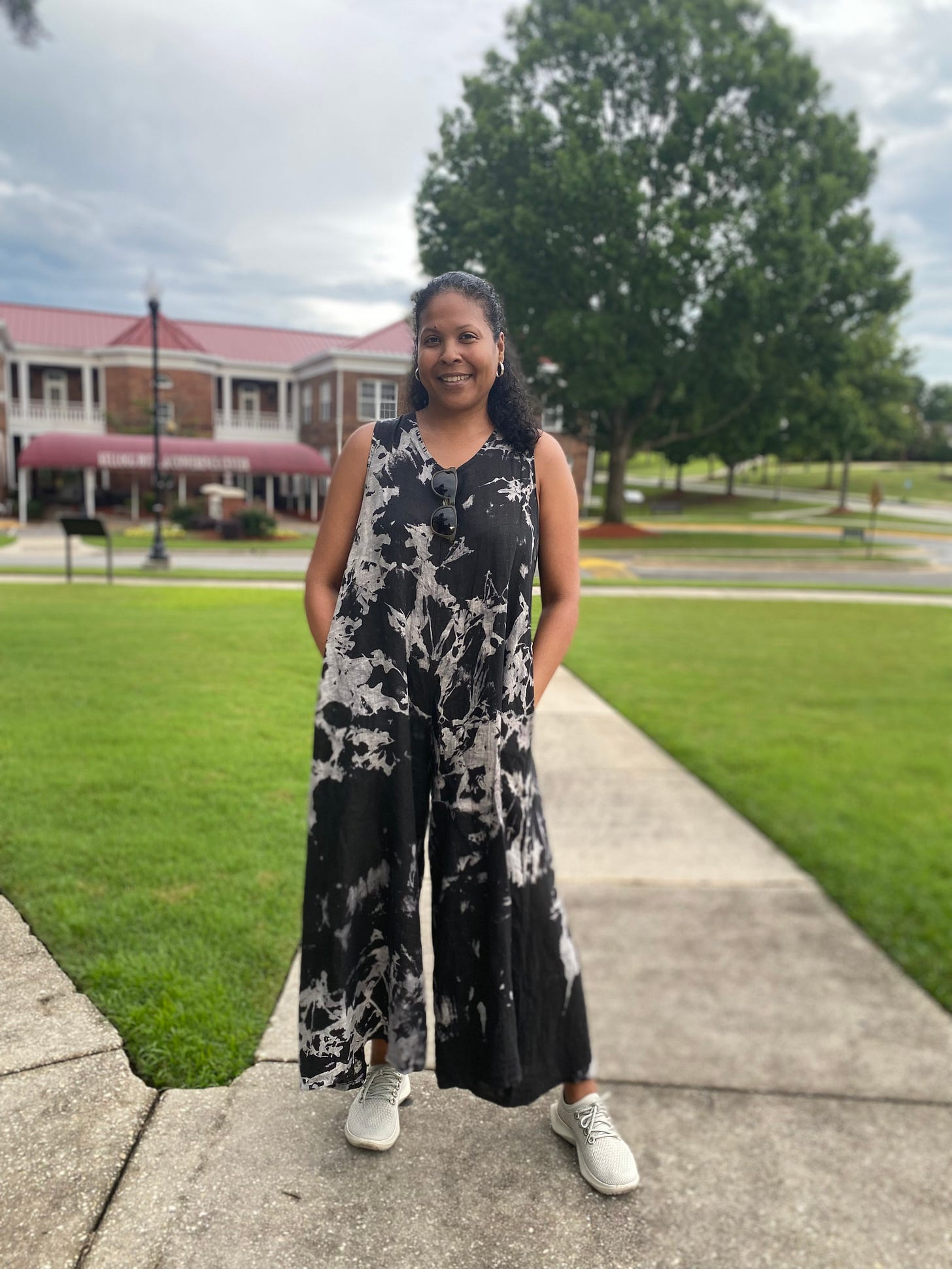Sing a Song
I Stood Before the Singing Windows at Tuskegee University's Chapel. The Past Still Sings.

The title of this letter borrows from Lift Every Voice and Sing, the Black national anthem written by James Weldon Johnson. The final four lines of the first stanza—
“Sing a song full of the faith that the dark past has taught us,
Sing a song full of the hope that the present has brought us.
Facing the rising sun of our new day begun,
Let us march on till victory is won.”
—have been reverberating in me since my visit to Tuskegee University last weekend.
Tuskegee, Alabama is about an hour and a half drive from Atlanta, where I’ve lived for the past 20 years. Tuskegee sits about 40 miles east of Montgomery and 20 miles west of Auburn.
On my way there, I passed a famous Buc-ee’s gas station in Auburn—known for having the cleanest restrooms in America, long aisles of merch, and the best brisket sandwich I’ve had in a long time. I wanted to stop so badly.
I didn’t.
I grew up about an hour southeast of here. Tuskegee is a town that feels like a movie set—frozen in time. The campus is beautiful.
Buildings made of rich red clay brick. Thick, tall pine trees—witnesses to the years.
No one was on campus.
It was summer break.
It was also raining.
I was there to discuss my writing with Professor Dr. Bill F. Ndi. I sat in his tiny office while a webinar played softly in the background. A woman on the screen, eyes closed, was singing from her soul.
I sat near the door as a student would. A heater blew warm air on my ankles.
He made coffee in a small office pot while I scanned the titles of about 30 or so books he had plopped down on top of an already paper- and book-laden desk— all with his name on the cover.
One of many notes taped to his office door warned students:
“Do not slide papers under the door.”
I asked him about it, already guessing the reason but eager to hear the story.
“Too many stories about papers mysteriously disappearing,” he told me.
I nodded. Maybe the cleaners really did suck up an end-of-term paper with a vacuum.
It’s plausible—just as plausible as the dog ate my homework. And honestly, I can’t say I wouldn’t have tried something like that back in my day.
Dr. Ndi holds two doctorates—one in Translation & Languages, the other in Literatures and Contemporary Civilizations.
“Each functions as two,” he said. So, I thought, he holds four doctorates in his head. The heap of books made more sense after that.
Next, we walked around campus, even in the rain. The thick pine trees towered above us, watching.
Witnessing.
The campus felt like a movie set. Maybe it felt that way because the students were gone. Or maybe I was sensing something that lingered in the air—in the red clay bricks, in the small cemetery near the University’s Chapel, in the misty rain that clung to it all. Greats and visionaries lie here. George Washington Carver. Booker T. Washington—his wife, Margaret Murray Washington, a notable leader in her own right who wrote many of his speeches.
The trees know.
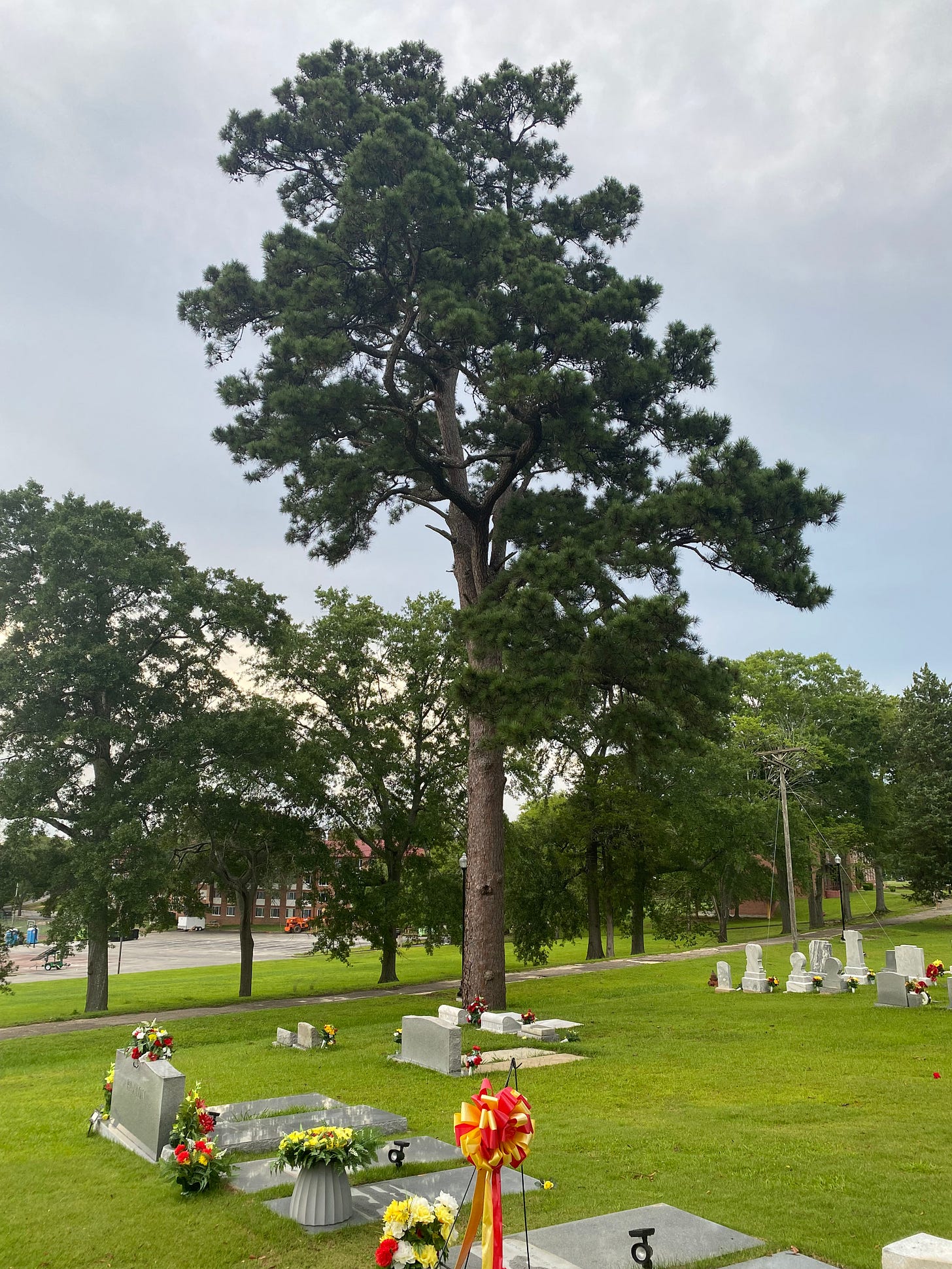
Dr. Ndi and I stepped into the University Chapel, surprised to find it open. We were the only ones there. We stood quietly before the famous stained-glass windows known as the Singing Windows.
They were inspired by Negro spirituals—songs sung by enslaved people as acts of faith, resistance, and longing for freedom.
They sang their way toward freedom. Now we sing them.
Maybe that’s what I was feeling.
The legacy in the air. A reminder that—
We’re still singing. Still not fully free.
When I returned home, I sat down and let my body tell me what I had witnessed.
The trees know.
***
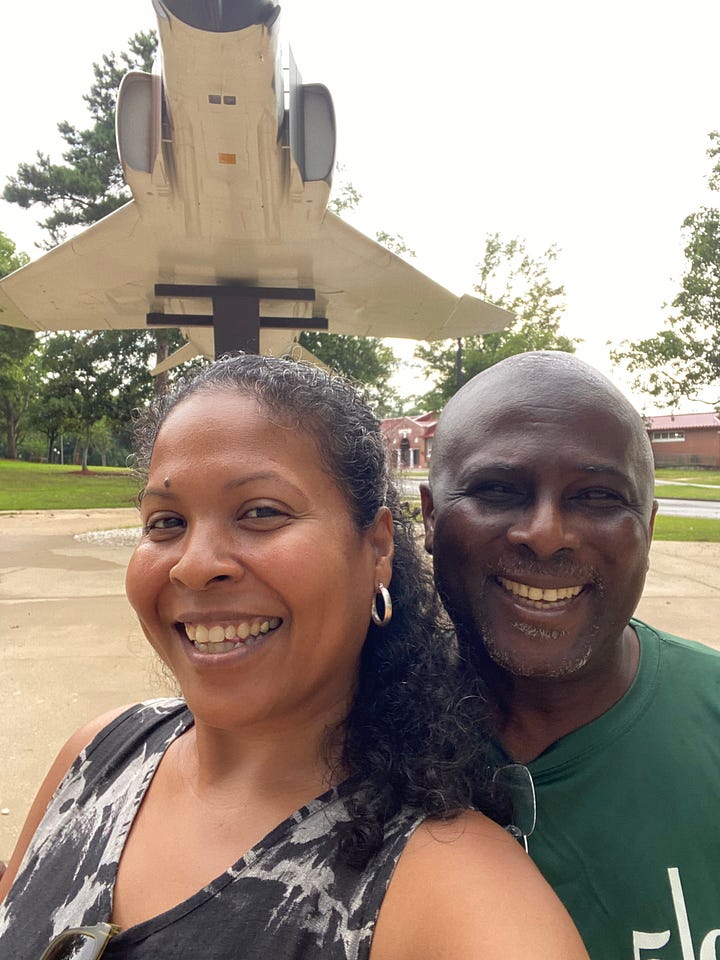
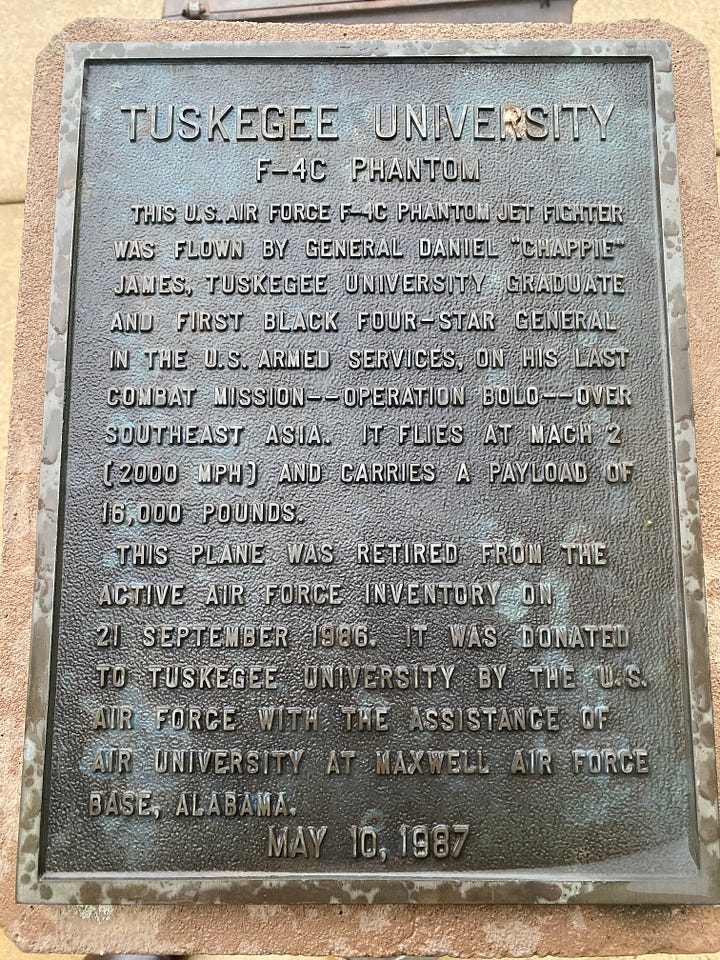
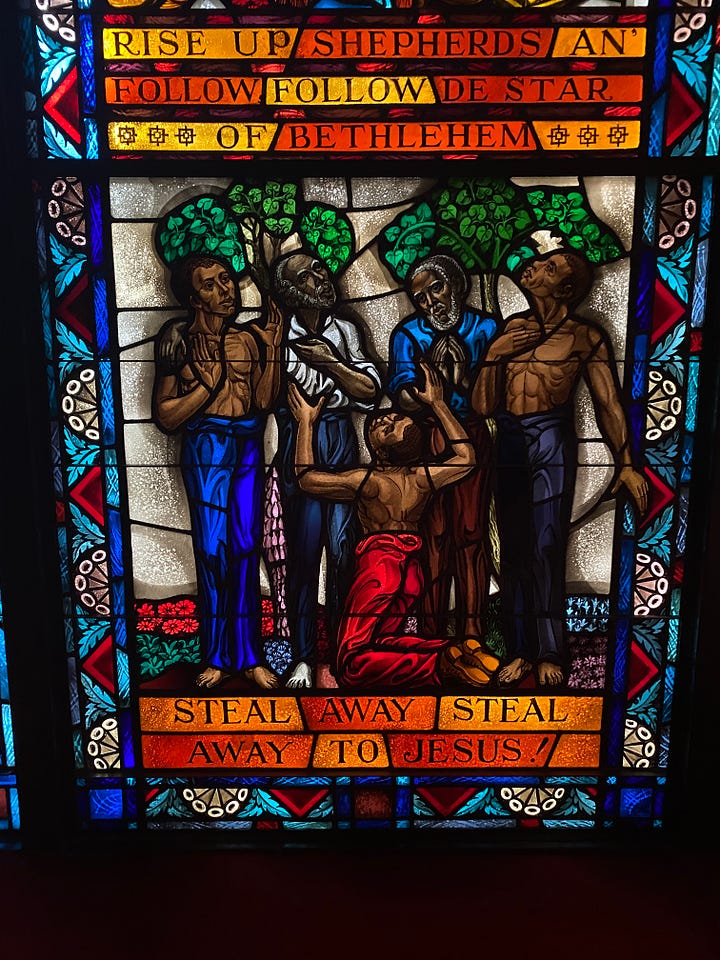
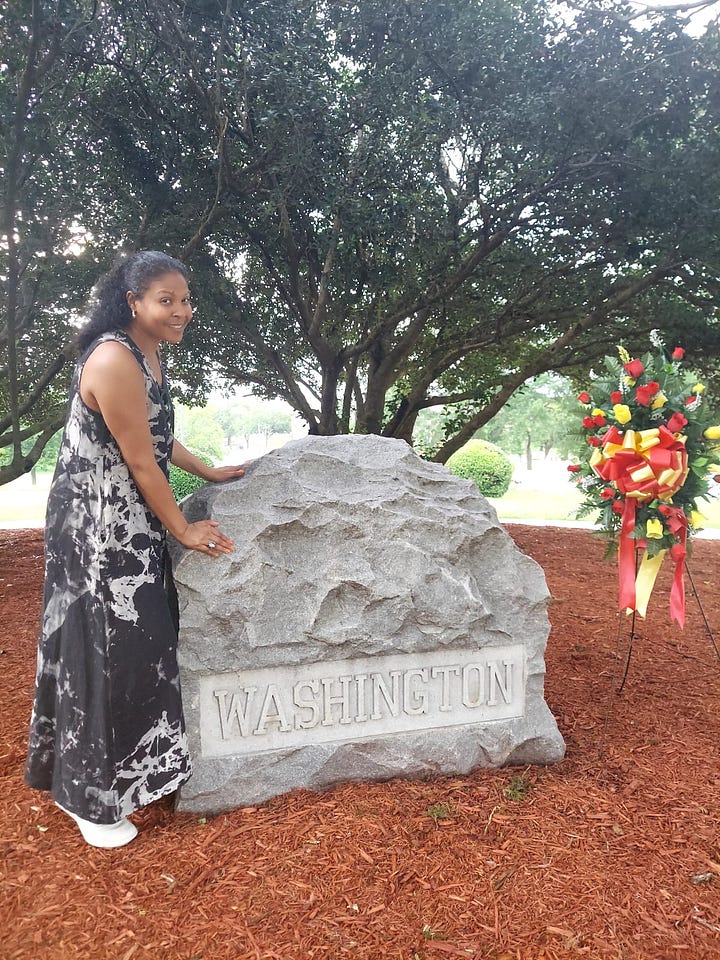
A Poem: The Singing Window of Tuskegee
(Dedicated to those who believed the day would come when we would all be free.)
The songs were stories of hope.
Coded escape routes.
A kind of salve for the soul—
but not for the body,
which carried weariness and wounds no song could fully heal.
The body carries something else.
Memory.
Trauma.
(How could there not be trauma?)
History.
Resilience.
But most of all, the body carries audacity.
It always has.
The audacity to sing from the flames—
Godsongs from the fire.
Flames, both igniting and carrying the melody,
traveling like codes.
Secret codes to another world, another planet.
Somewhere far back before the chains—
or far, far beyond them.
Anywhere but here.
Here in the flame,
that at times felt hopeless.
But the sounds from their voices
carried hope.
They are gods.
They are divine.
Children from beyond the beyond.
The songs are how they remember—
the Godsongs of their souls.
But remembering was hard sometimes.
Still, it was the way to hope.
And hope was the way to freedom.
As I stood in front of the Singing Window,
I felt both beauty and pain.
Both hope and despair.
All wrapped in stained glass.
As if saying:
“Nonetheless, you were made in the image of the divine.
And the divine will always be beautiful.”
Fire forges those who stand in the flame—
and shines light on the sacrilegious perpetrators.
Later, when I got home,
I mistakenly called the Singing Window, the Weeping Wall.
Yes—
sometimes songs weep,
even as they soothe,
even as they tell secrets
of the path to freedom.
Even through memory,
though ancestral code,
embedded in my body.
I hear them.
They refuse to be silent.
***
With love and wonder,
~Reyna
Happy Juneteenth! 🖤❤️💚



